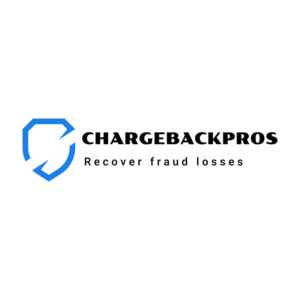It is becoming increasingly common for cryptocurrency mining operations to adopt some AML compliance controls. But which controls make the most sense, and how will you know when your business requires them?
While cryptocurrency mining operations aren’t technically required to adopt AML compliance countermeasures, many are choosing to implement some basic protocols in order to protect themselves from unknowingly dealing with potentially illicit or sanctioned individuals, as well as to lend their business more legitimacy in the marketplace.
Thus, a version of an AML compliance program specific for crypto mining is emerging as an informal expectation and best practice.
Here’s the problem.
AML compliance in cryptocurrency is, as we have long argued, already a square peg/round hole situation. Regulations that normally apply to financial institutions don’t always neatly map onto crypto; crypto compliance is nuanced and challenging.
But it is doable, and is even able to be done effectively and well, so long as the business model is engaged in money transmission.
For more unique businesses, like crypto mining, while the benefits of AML compliance are very real, figuring out what applies is even more challenging.
But don’t worry. That’s what we’re here for.
In this article, we’ll help you understand where compliance comes into play for crypto miners, the clear benefits of AML compliance, and explain what a basic crypto miner AML compliance program should accomplish.
Cryptocurrency mining as a business model
First things first. How do you know that your business model needs compliance protocols in place?
We have to draw a distinction between two kinds of cryptocurrency mining: mining for one’s own benefit, and managing property the purpose of which is to mine cryptocurrency at scale.
If you operate your own mining equipment, the sole purpose of which is to mine cryptocurrency for your own benefit, either to keep for yourself or to sell or trade as a user on an exchange, then AML compliance has limited (if any) application to your situation.
Indeed, FinCEN has made it clear that virtual currency mining operations are not considered to be money services businesses (MSBs) money transmitters.
From FIN-2014-R001 “Application of FinCEN’s Regulations to Virtual Currency Mining Operations” issued January 30, 2014:
FinCEN understands that Bitcoin mining imposes no obligations on a Bitcoin user to send mined Bitcoin to any other person or place for the benefit of another. Instead, the user is free to use the mined virtual currency or its equivalent for the user’s own purposes, such as to purchase real or virtual goods and services for the user’s own use. To the extent that a user mines Bitcoin and uses the Bitcoin solely for the user’s own purposes and not for the benefit of another, the user is not an MSB under FinCEN’s regulations, because these activities involve neither “acceptance” nor “transmission” of the convertible virtual currency and are not the transmission of funds within the meaning of the Rule.
While an individual engaged in crypto mining for their own benefit will have certain tax obligations, there is no requirement of any kind for compliance whatsoever.
When AML compliance makes sense
Things get a little more complicated for property managers who lease space for crypto mining operations at scale.
In this business model, an entrepreneur will purchase, rent, or lease property and then rent or sublet all or some of the space to a separate business or individual who is engaged in a mining operation that requires more room and equipment than you can typically fit in a home office.
Imagine a repurposed server farm; a warehouse full of technology dedicated to mining crypto at scale. Whoever owns or operates that warehouse is the person who needs to be thinking about compliance protocols.
Here’s why.
While renting space isn’t a matter of financial compliance, once you start renting space to businesses or individuals engaged in a larger-scale mining operation, you are potentially exposing yourself to shady actors in the crypto space.
There’s no guarantee you’ll run into a shady actor of course, but crypto does have well-documented problems with fraud, scams, and other forms of financial crime. You don’t want to be in business with someone who is mining for the purposes of money laundering or terrorist financing.
Similarly, you don’t want to unwittingly end up in business with an owner or beneficial owner of a crypto mining operation who is on a sanctions list, or whose country is.
Simply put, if you are engaged with parties involved in the movement of funds, you need to understand your risk exposure. This is a key reason that AML compliance among crypto mining operations is an emerging best practice.
There are other benefits as well.
Banks have been warned several times in recent years about their exposure to cryptocurrency or crypto-related businesses:
While some banks are showing signs of softening up on crypto, overall, the traditional financial sector is taking a much closer look at the crypto businesses they have relationships with, to ensure that they are taking responsible steps to mitigate risks and maintain AML compliance.
Long story short, establishing or maintaining a relationship with a bank will require some compliance basics.
The same benefits will apply to attracting investors, mitigating potential legal risks, and more.
If you’re running a crypto mining operation at scale, compliance makes sense. Period.
So, what do you need to put in place?
Basic AML compliance for cryptocurrency miners
While compliance recommendations can and will vary based on things like customer type, geography, and services offered, crypto miners should at minimum implement the following compliance protocols.
Know Your Customer/Customer Due Diligence (KYC/CDD)
Earlier, we mentioned the importance of not unwittingly serving customers that are on sanctions lists, or who are potentially involved in illicit activity. Basic KYC is one of the most proactive things you can do to avoid that.
Develop a policy that is specifically geared towards vetting a mining company, including its beneficial owners.
Surveillance and Monitoring
In a crypto mining context, this means cataloging the wallet addresses used by your customers to accept or receive rewards. You will need to develop a series of red flags specifically tuned to wallet behaviors that may be deemed suspicious or unusual, such as wallet association with the darknet or mixer/tumblers.
Sanctions screening
Sanctions screening typically falls under the broad purview of CDD (specifically Enhanced Due Diligence, or EDD), but we want to focus on it specifically because of how it uniquely affects crypto mining.
Crypto miners are constantly searching for new and more advantageous locations, where the cost of operations is low enough to allow them to maximize profits from mining activity. This means that you may end up courting interest from clients from places like China, Russia, or other countries that have certain restrictions or outright bans on doing business.
Because crypto mining can attract clients from the international stage, diligent sanctions screening is an absolute must.
Key takeaways
If you’re engaged in crypto mining for your own benefit, aside from your tax liabilities you probably don’t have much to worry about (though it’s always a good idea to keep solid records).
If you own or operate a large-scale server farm and rent units or space to crypto miners, then you need to have some basic compliance practices in place.
Like we said above, it can be difficult to advise you without knowing more about your specific risk profile (based on your customers, location, and overall suite of services). If you have any questions or would like us to consult on compliance best practices for crypto miners, you can reach out to us here.











